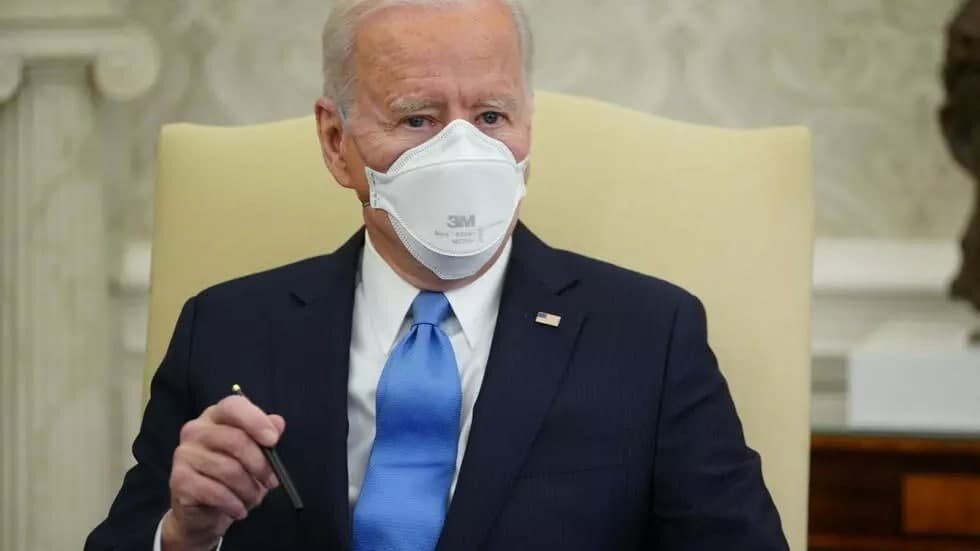Biden intends to talk with Iran before officially rejoining JCPOA: Bloomberg

TEHRAN- Iran says the U.S. must first return to the 2015 nuclear deal and lift sanctions if it wants talks with the Islamic Republic, appearing to snub an effort by the Biden administration to begin direct discussions before officially rejoining the nuclear agreement, according to Bloomberg network.
The Iranian Leader Ayatollah Ali Khamenei called it Iran’s “final policy” on the matter in an Instagram post, reiterating a statement he made last week. Earlier Foreign Ministry spokesman Saeed Khatibzadeh said the “key sequence” for engagements between the two nations was commitment, action and then a meeting.
According to American network, Iran’s reactions indicate “the challenges in ending an impasse that has threatened to enter the Persian Gulf region into a new conflict in the years since former President Donald Trump exited the international agreement and imposed sanctions.”
Iran is set to restrict international inspections of its nuclear sites, a significant hardening of its stance in the face of punishing U.S. sanctions that threatens to make compromise by either side more difficult.
The Biden administration announced it would be willing to meet with Iran to discuss a “diplomatic way forward” in efforts to return to the nuclear deal, a first step toward easing tensions.
State Department spokesman Ned Price declared, “The United States would accept an invitation from the European Union High Representative to attend a meeting of the P5+1 and Iran to discuss a diplomatic way forward on Iran’s nuclear program.”
The U.S. also lifted travel restrictions on Iranian envoys and reversed a Trump administration claim that it had imposed - or “snapped back” - United Nations sanctions on Iran, according to a letter sent to the UN Security Council and seen by Bloomberg.
The offer is a politically risky effort by President Joe Biden to move beyond the standoff after a series of U.S. sanctions hurt Iran’s economy and infuriated other world leaders, who argued that the accord and the inspections regime it created had controlled and monitored Tehran’s nuclear program.
According to Bloomberg, Biden, in remarks to a security conference in Germany on Friday, noted the threat of nuclear proliferation meant it was important to engage with Iran. “We must also address Iran’s destabilizing activities across the Middle East (West Asia) and we’re going to work in close cooperation with our European and other partners as we proceed,” he remarked.
The U.S. moves were a “positive step” but not enough to persuade Iran to reverse changes to its nuclear program or keep the wider inspections regime, said Diako Hosseini, an analyst at the Tehran-based Center for Strategic Studies, a government-run research institute that advises the president.
“It’s a weak beginning to a real diplomatic effort,” Hosseini said while adding it could still create the room needed for progress.
European parties to the nuclear deal hailed the U.S. measures. Germany urged Iran “not to implement and to rethink these announced limits on IAEA inspectors,” Steffen Seibert, spokesman for Chancellor Angela Merkel, said at a press conference in Berlin.
However, both Russia and China supported Iran’s stance, stressing that Washington’s official return to the nuclear deal remains key to ending the stalemate.
While a turn away from a policy of sanctions is “by itself” a good thing, “it is the restoration of the JCPOA regime that is important,” Kremlin spokesman Dmitry Peskov told reporters on a conference call on Friday, using a formal abbreviation for the accord, officially known as the Joint Comprehensive Plan of Action.
Hua Chunying, China’s Foreign Ministry spokeswoman, told reporters on Thursday that rejoining the deal by the U.S. was the “only correct approach to resolve the impasse” and called for its “unconditional return as soon as possible.”
The U.S. offer to hold talks was aimed at restoring a diplomatic pathway with Iran, which has been gradually abandoning its commitments under the nuclear deal in response to the Trump administration’s “maximum pressure” sanctions campaign.
U.S. and European officials are particularly alarmed by Iran’s decision to stop letting the International Atomic Energy Agency conduct snap inspections by suspending the so-called Additional Protocol from Feb. 23. The Director-General of the agency, Rafael Mariano Grossi, was due to arrive in Tehran on Saturday for talks with Iranian officials about nuclear inspections.
EE/PA
Leave a Comment